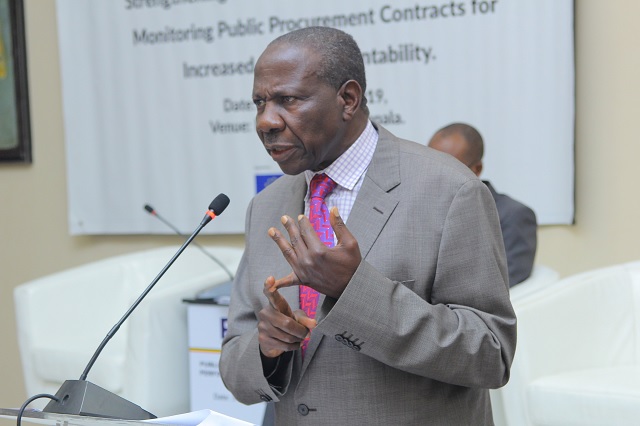
Kampala, Uganda | THE INDEPENDENT | More than three years since the idea to rationalize government agencies, ministries and departments was mooted, the prime minister is still decrying the overlapping or duplication of roles in government.
Apart from this pushing up the cost of public administration, Prime Minister Dr Ruhakana Rugunda says it continues to affect implementation of government projects, as coordination becomes impossible in some instances.
Following a presidential directive to the prime minister and a subsequent cabinet decision to take action, there was a draft decision to merge, disband or return to parent ministries, 146 public agencies.
The plan was to have the decision implemented between 2020 and 2022 where the number would be reduced by half.
However, the implementation was halted with the Ministry of Public Service citing legal and technical issues, including how to handle the debts held by some MDAs.
This meant the continued high expenses and sometimes failure to effectively execute government programs under the National Development Plan 1&2, according to Dr Rugunda.
“We have learnt lessons from the implementation of NDP I and NDP II. The first of these is that coordination and oversight were not sufficiently strong in these last 2 plans. As a result, there was always duplication of efforts and wastage across sectors and institutions,” says the PM.
He was presiding over the first semi-annual review of the Development Plan Implementation (DPI) Programme and the Private Sector Development (PSD) Programme of Uganda’s 3rd National Development Plan (NDP III).
As the NDP II came to an end in June last year, the National Planning Authority said the plan had not achieved half of the goals set, and duplication and lack of coordination was stated as one of the reasons.
The goals of the NDP III include improving household incomes and the quality of life among Ugandans through sustainable industrialization, inclusive growth, expansion of employment and wealth creation.
Dr Rugunda said that it was even difficult to get vital data on performance and as such, it could not be used to their oversight function.
This meant that there were many instances where money spent did not match the results achieved according to him.
Minister for Finance Matia Kasaija says the ministries and other agencies want to work in isolation because each wants to control resources, and this cannot lead to expected results.
The government says that under the NDP III, oversight will now be strengthened with the introduction a new structure, the Apex Platform.
This will be chaired by the President, with members including the Prime Minister, the Minister of Finance, Minister of State in the Office of the Presidency in charge of the NDP III and the Chairperson of Board at NPA.
This structure shall receive periodic reports on the implementation of the NDP III and take decisions to resolve any weaknesses or contradictions.
“Weak performance will be sternly dealt with,” says the Prime Minister. “Secondly, coordination under my office will be strengthened with the creation of a National Coordination Office on the NDP III. We are also going to reform the GAPR to make it more result oriented and to align it with the NDP III.”
These reforms are being extended to government institutions.
Kasaija says the reforms are ongoing and being implemented by various ministries, with the ministry of public service in the lead, warning that there will be short term effects like loss of jobs.
On the NDP III, the Prime Minister reminded that ministries and local governments that the Plan has only four years left on it, and that those slowing government programs towards the set goals will not be tolerated.
“Everyone of you should quickly re-organise and direct all your efforts towards the 18 programmes and the NDP III objectives,” he said. “We have four years left to the implementation of the NDP III, and we must use them to the best of our ability to achieve the goals.”
The semi-annual review is a compliance requirement under the NDP III.
It is intended to allow programme implementing institutions to review the progress they are making and agree on corrective steps where necessary.
******
URN
 The Independent Uganda: You get the Truth we Pay the Price
The Independent Uganda: You get the Truth we Pay the Price



